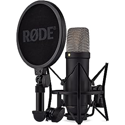Earning with podcasting, does it work like radio?
How do you make money with podcasts? Two models (and an incoming war). Advertising or subscription? Two solutions for the online economy, and one is better than the other
Lately there has been a lot of talk about podcasts. It is not only done for that physiological movement for which in European markets the great phenomena of mass culture of America are discovered with a few years of delay (in the United States the golden season of the podcasts began in the distant 2014, with “Serial “), But also because recently this ancient and new vehicle at the same time (in the end a podcast is nothing but a recorded radio broadcast) is at the center of innovations and big projects.
Spotify, the world’s largest music streaming company, astonished everyone last month by employing millions of dollars in the purchase of two podcast companies, with the clear intention of becoming the first superpower in what looks like a promising market. The first purchase was Gimlet Media, a producer of (excellent) podcasts that tend to be a media company. The second purchase was that of Anchor, a startup that has been compared to the “YouTube of podcasts”. Now, the very siliconvalley cliché of comparing a startup to a more famous one has come to bore everyone (until recently it was all a “my startup is the Uber of adult diapers”), but sometimes it’s helpful. Anchor is an app that allows you to easily create your own podcast, even with your smartphone, and publish it online, just like YouTube does with videos. To earn money, Anchor claims to have a “monetization” system, which means: advertising. (Even if the purchase by Spotify could change the cards).
Moreover, three days ago, the world of podcasts was shaken a bit when Luminary was presented, a competing project that wants to be – the founder told the New York Times – “the Netflix of podcasts”. Luminary has produced some podcasts with high-level stars including Trevor Noah, Lena Dunham and Malcom Gladwell, exactly as Netflix does with TV series. To listen to these podcasts, you have to pay a fixed monthly fee, without advertising. A subscription, basically.
It is interesting that in just a few weeks two different business models were presented to the public to sell the same product. On the one hand, there is a company that wants to provide podcasts for free (as well as the tools to produce them) to users, asking for an ad in advertising and especially in personal data. It is one of the great models with which you make money on the internet, perfected by Google and Facebook, which offer free services and in return siphon personal and confidential information, to resell them to advertisers.
On the other hand there is a company that has a simpler model: pay to listen to our products. Although primitive, this business model has obvious advantages: it is more stable, it is ethically less ambiguous and allows the user to assess the quality of the product more directly – if I don’t like it, I stop paying, and I’m not held in a behavioral nudge network. It’s the other big model with which you make money on the internet.
If a new podcast war is about to be born, in a digital market that, despite being mature, has not yet found a true identity, it will be to these two models that we will have to pay attention. So far, the all-free-with-advertising model has prevailed, but has proved to be full of problems and above all not sustainable, especially for those who are not Google or Facebook.









